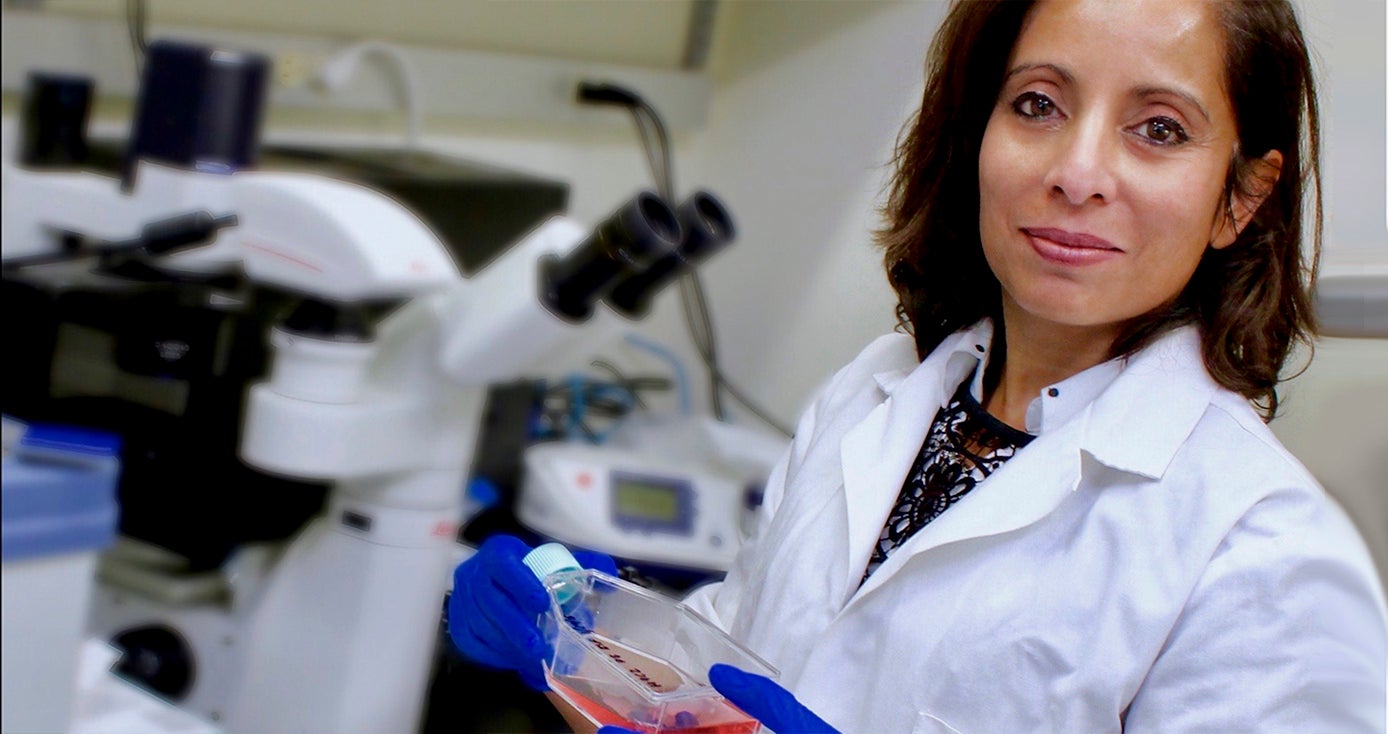
Subscribe to Pittwire Today
Get the most interesting and important stories from the University of Pittsburgh.Cardiologist's Creation Aims to Reduce Radiation Exposure From Stress Tests
When patients describe chest pain as coming from the heart, they are often prescribed stress tests that use a specialized radiological scan for diagnosis, prognosis or treatment monitoring.
The repetitive scans expose more than just the heart to radiation and can also result in images that are less than clear. Maliha Zahid, a cardiologist at the University of Pittsburgh’s Department of Developmental Biology, has created a way to deliver radiation straight to the heart with the aim of alleviating both of these problems.
“During these tests, the radiation goes everywhere; it goes into the liver, the lungs and the gut to name a few organs. Because the gut is so close to the heart, it can sometimes cause images to be difficult to interpret,” Zahid said. “By sending the radiation only to where it’s needed for imaging, you can reduce the amount of radiation by as much as 80 percent. We are hypothesizing that this will also lead to higher image quality.”
These specific stress tests are “the biggest contributor to radiation that patients receive in the course of medical treatment,” she said. A study published in 2011 in the National Center for Biotechnology Information showed that such scans performed annually in the United States could result in 7,400 additional future cancer cases. Zahid said that there are other types of stress tests, but they are less common and less favored.
Her research led to the creation of a novel non-naturally occurring 12-amino acid peptide — peptides are molecules made up of links of amino acids that are the building blocks of proteins — called the Cardiac Targeting Peptide. It intravenously transports radioisotopes needed for stress test scans and is designed to be taken up only by cardiomyocytes — cells that make up the heart muscle. The radiation therefore doesn’t spread to other organs and, unlike the course for current stress tests, the peptide then leaves the heart and is excreted through the kidneys, sparing the liver.
Zahid said this took about two years and six attempts to get right.
“The last attempt, I told myself, ‘if this doesn’t work, I’m going to give up,’” she said. “It worked, and we found a peptide that we were able to manufacture in the University’s Peptide Synthesis Facility.”
Zahid’s peptide won first place at the Pitt’s Clinical and Translational Science Institute (CTSI) 2016 Pitt Innovation Challenge (PInCh), with the $100,000 in winnings going toward advancing Zahid’s research findings toward clinical application.
She also was recently received the American Heart Association Investigator Award for $210,000.
Zahid and her co-inventor, Paul Robbins, a molecular medicine professor at the Scripps Research Institute in Jupiter, Florida, have been granted a U.S. patent on the peptide technology and are planning a startup company, CardioTrak, for the near future.
From Idea to Reality
Pitt researcher Maliha Zahid received assistance in translational research strategy from sciVelo and in commercialization from Pitt’s Innovation Institute.
“The past year has been fun and fast-paced like a rollercoaster ride,” Zahid said. The Clinical and Translational Science Institute (CTSI) Pitt Innovation Challenge (PInCh) “introduced me to a number of contacts, people who were willing to educate and help. And the learning from my translational science mentors at CTSI, sciVelo and the Innovation Institute has been amazing.”
CTSI, funded by the National Institutes of Health, provides researchers like Zahid the tools and resources they need to take their ideas from concept to reality.
Pitt’s sciVelo, the “top-of-the-funnel,” campus-wide commercial translation program, is among CTSI’s national network of partners, assisting investigators in early stage strategic planning to maximize the clinical impact of the University’s research projects.
sciVelo supports PinCh by working closely with CTSI facilitators, as well as applicants and competition winners.
This support includes the following:
- Translational research experimental design.
- Data interpretation.
- Orientation toward unmet market needs.
- Advancing projects toward later-stage Pitt commercialization partners, such as the Innovation Institute, for intellectual property management, licensing and new company formation.
Learn more at the organizations’ websites: sciVelo, Clinical and Translational Science Institute, Innovation Institute, Pitt Innovation Challenge.


